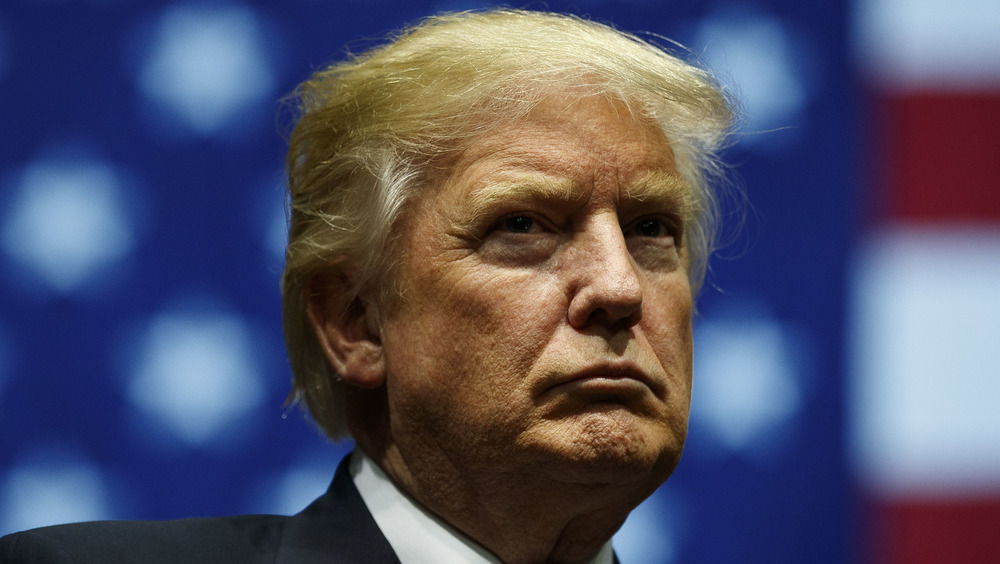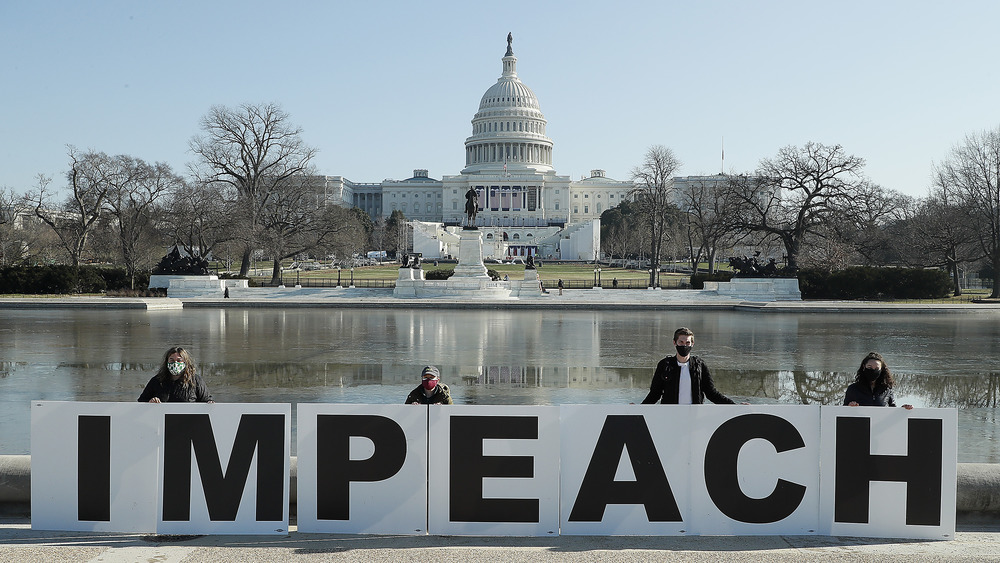Rules That Impeached Presidents Have To Follow
As you might remember from junior high social studies, the American federal government consists of three branches: the Executive (the president), the Legislative (Congress, the U.S. Senate, and the House of Representatives), and the Judicial (the courts). In order to protect against any one branch having too much power (the Founding Fathers were consciously trying to establish a government as far removed from a monarchy as possible), a system referred to as "checks and balances" was created. One of the ways that Congress can keep the president of the United States in line and acting in the best interests of the nation is the "nuclear option": the threat, and execution, of impeachment.
According to The New York Times, it all starts with the House filing one or more articles of impeachment, accusing the president of really serious offenses, which the Constitution defines as "treason, bribery, or other high crimes and misdemeanors." Contrary to common belief and misuse of the term, "impeachment" doesn't mean "to fire the president" but rather to officially accuse them of illegal acts, which then triggers a trial should the Legislative branch elect to do so. Three presidents have been impeached: Andrew Johnson, Bill Clinton, and Donald Trump (once in 2019 and again in 2021). None were convicted and thus didn't face the consequence of removal from office, but their administrations and legacies will forever carry the stain of impeachment. If they'd been convicted, they'd have had to accept certain laws and Constitutionally mandated dictums following the entire legal brouhaha.
Impeached and removed presidents possibly can't be president again
If the House impeaches a president, but the Senate doesn't garner enough votes to convict, firing them essentially, then nothing really changes. That presidency was on the brink of ending, but then it didn't. Without a conviction and punishment, they're afforded the same rights and privileges as they would had they never been impeached. It's basically a not-guilty verdict — they're free to go. This also applies to their future political prospects.
Impeached and convicted presidents can be barred from holding federal office ever again — which, according to Time, is a big reason behind the second impeachment of Donald Trump just days before his term was set to expire in January 2021. If found guilty on a charge of incitement of insurrection, as outlined in the article of impeachment broached by the House of Representatives, the Constitution says that Trump can be prohibited from holding the office of the presidency again in his lifetime. (After losing the 2020 election, he's toyed with the idea of running for a second term in 2024, according to Politico.)
A conviction on the impeachment article (even though the Senate won't begin the trial until after Trump is out of office) could effectively kill Trump's political career. After voting to convict, the Constitution requires the Senate to hold another vote to determine if the guilty party could become president once more. Unlike the conviction and its two-thirds majority, barring the convicted president from holding office again only requires a simple "yes" vote from a majority of the 100 senators.
An impeached and removed president doesn't get the ex-presidential perk package
A president impeached by the House, convicted by the Senate, and then removed from his position by that same Senate faces a lack of benefits typically afforded to former commanders-in-chief. As stated by the Former Presidents Act, former presidents who serve out the terms for which they were duly elected or legally succeeded to receive a lifetime annual pension that's "equal to the annual rate of basic pay" of a top-level executive government official. As of 2020, that figure is $219,200. (That's not a bad salary for being the president once but not anymore.) The Former Presidents Act also allows for federal funding for the former president to have a staff and offices anywhere in the United States, along with (according to Reason) up to $1 million a year in security and travel expenses, which funds a lifelong Secret Service protective detail.
But as the Former Presidents Act provides, it can also take away. There's a clause in the law that specifically prevents collecting on that cash for presidents who left office early, against their own wishes — those impeached and convicted, for example. If President Donald Trump is convicted by the Senate of inciting insurrection, then he won't receive these parting gifts. If the Senate were to find him not guilty, though, he'd get all that stuff because he survived his first impeachment trial and would be considered a regular ex-president.


